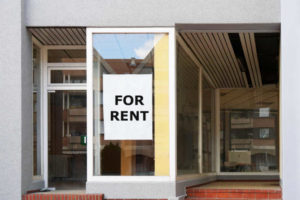
By Axel Bueckert @ Shutterstock.com
According to Conor Sen in Bloomberg, the rental market could be headed for a hard landing. Sen writes:
For most of the past year, investment risk in the housing market has been focused on the for-sale segment. That was largely because the huge run-up in home prices during the pandemic led to a mentality of “what goes up must come down,” coupled with long memories of the housing bust in the late 2000s. But the data we’ve gotten over the past several months suggest that it’s the rental part of the housing market that’s setting up for a hard landing.
Declining rents in 2023 should be the base case at this point, with the only question now being how far they will drop? And while tenants will cheer this possibility, the worry is that it will destroy the pipeline of new supply for years to come.
The risks growing in the rental market are surprising because the turnaround has been so sudden. Tenants are still reeling from multiple years of steep gains. The first hints of the downturn showed up just three months ago, after weak apartment demand in the third quarter led to seasonality returning to rental prices.
It’s gotten steadily worse since then. According to Apartment List, rents fell nationally every month in the fourth quarter. Rents falling in the fourth quarter is in-line with the pre-pandemic seasonal norm, but the magnitude of the declines are bigger than what we saw between 2017 and 2019. Rents fell nationally by an average of 0.9% a month in the fourth quarter, versus a 2017-19 average that was half that. In a typical year rents grow by about 3%, so that suggests rents fell by 3% in the last three months of 2022 on a seasonally adjusted annualized basis.
Why has the rental market turned so weak? As rental housing economist Jay Parsons points out, new lease demand cratered in the second half of the year, and was negative for the full year for the first time since 2009.
During the pandemic, there was an explosion in the number of single-person households formed, and they largely moved into apartments, in many cases replacing the people who contributed so much to home-buying demand during the same time. Just as we saw in e-commerce and streaming services, the rental market pulled forward demand from the future. And it took until the second half of 2022 for that demand to be exhausted, leading to fewer lease signings, rising vacancies and falling rents.
Read more here.
